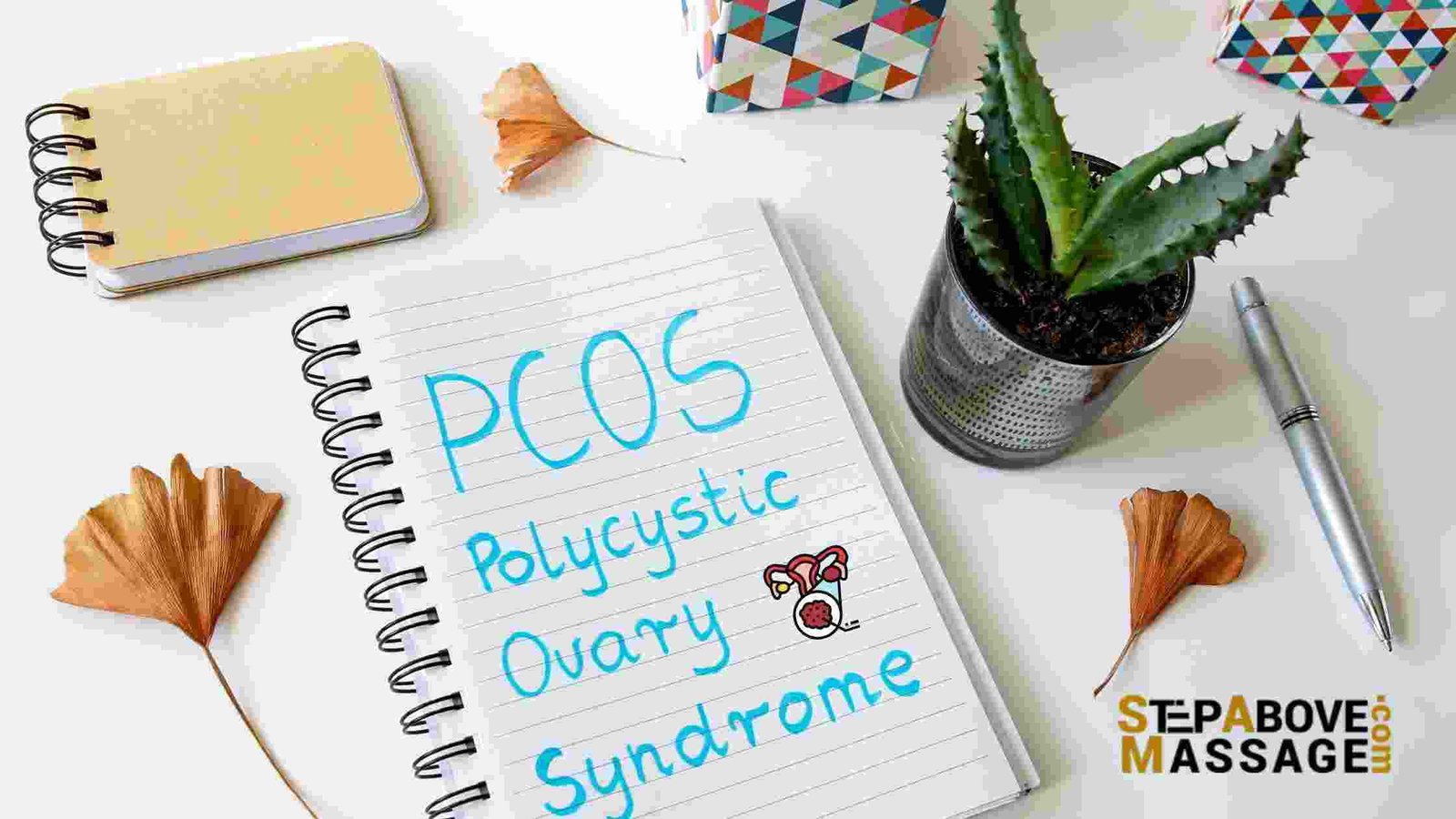You may have heard of Polycystic Ovary Syndrome, or maybe you are acquainted with it. This is quite a condition for so many ladies, and thus it is important to know it better. Now, let’s get down to what PCOS is and how using essential oils might be able to make one feel better.
Some women may have irregular periods, while others will not experience any at all; this is because the ovaries fail to release an egg every month, thereby making it harder for women with PCOS to conceive.
You may also notice other symptoms, ranging from acne to increased hair growth—the most embarrassing one, for sure—to facial hair weight gain to thinning of hair. And these can be frustrating, especially if you’re not quite sure what’s happening with your body.
However, the other underlying health issues caused by this disease are far more serious than these apparent signs. It incidentally raises the chances of having type 2 diabetes, high blood pressure, and heart disease if left unmanaged.[/ultimate_heading][ultimate_heading main_heading=”My experience with PCOS” heading_tag=”h3″ alignment=”left” margin_design_tab_text=””]Some of my friends have had to face PCOS, and I’ve seen quite up close what it does. Mood changes, unpredictable cycles, and the fight against weight—it seems like the mountain’s never-ending. It’s not just physical symptoms, either; the emotional toll can be heavy.
Some tried different types of medication, while others began to investigate alternative treatments. What interested me, more than anything else, was the core use of essential oils; it’s more holistic, and people have found relief thanks to them. Therefore, I began to research it somewhat, really, and what I found was just incredible.[/ultimate_heading][ultimate_heading main_heading=”Essential oils and Their Role in Managing PCOS” heading_tag=”h3″ alignment=”left” margin_design_tab_text=””]I was curious when I first read about essential oils for PCOS, but a bit skeptical all the same. How would something so simple cure something as complicated as PCOS? Of course, upon researching the subject of essential oils, I realized they do not cure PCOS but rather help manage some symptoms.
Following are a few essential oils that may help:
- Oil of lavender
Lavender is known for its calming properties. If you are facing the stress and anxiety that, more often than not, comes alongside PCOS, then lavender oil may be a good choice for you. I used it myself to calm my mind after a very long, stressful day. This will help you with your relaxation, and most women dealing with this issue do need that.
The best ways to use lavender oil are either via diffusion or by adding a few drops into your bath. Really, after a hard day at work, it is like a small luxuriousness that gives the biggest plus.
- Clary Sage Oil
Another very popular daytime essential oil, which has recently gained a reputation for balancing hormones, is Clary Sage. It’s known to regulate estrogen levels, which may be very helpful if you’re experiencing hormonal imbalances because of PCOS.
Clary Sage oil can be applied to the skin, always diluted with a carrier oil, or inhaled through a diffuser. Some women say it helped them ease menstrual cramps and even regularize their cycles. If that sounds like something you deal with, Clary Sage might be worth a try.
- Peppermint Oil
If unwanted hair growth—an affliction most of the women who suffer from PCOS can testify to—peppermint oil stands out as a lighthouse in the darkness. This oil is anti-androgenic, which essentially means that it will prevent the metabolism of too many of the androgenic hormones within your body.
I read stories of women who had used peppermint oil topically, with carrier oil dilution, in areas where they noticed an increase in hair. This is not a magic solution, yet one such natural addition you could make to your routine for managing this particular symptom.
- Cinnamon Oil
Other than as a spice in cooking, there is a relation of cinnamon to its essential oil improving insulin sensitivity. Furthermore, since PCOS is a condition that involves insulin resistance, this essential oil, cinnamon oil, might help regulate blood sugar levels and, for some women, maintain weight to reduce the severity of symptoms associated with PCOS.
You can diffuse cinnamon oil or apply its dilution to your skin by mixing it with a carrier oil. However, remember that cinnamon oil is really strong and irritating if not diluted well when applied.
- Geranium Oil
Geranium oil is known for hormonal balancing and improves emotional well-being. Mood swings are very common in many women with PCOS, and this oil might help. This might support adrenal function, reducing stress and making the emotional handling of PCOS a bit easier.
Like other essential oils, you can apply geranium oil topically—always diluted—or diffuse it to achieve many of its calming properties.[/ultimate_heading][ultimate_heading main_heading=”How to Use Essential Oils for PCOS” heading_tag=”h3″ alignment=”left” margin_design_tab_text=””]If any of this stuff is Greek to you, don’t you worry. I was right there with you, and honestly, once you get a hang of it, it’s super simple. The most common ways to use essential oils for PCOS are:
- Diffusing: A few drops of an essential oil are to be diffused to breathe in the benefits. You can inhale this while working, relaxing, and gaining calm sleep.
- Topical Application: Some essential oils are okay to apply directly to your skin, but you’ll want to dilute them with some type of carrier oil, such as coconut or jojoba oil. This works great for things like peppermint and Clary Sage.
- Baths: Adding a few drops of your essential oil in the water can be so relaxing but may also serve to improve symptoms of PCOS, such as stress and hormonal imbalances.
[/ultimate_heading][ultimate_heading main_heading=”My Thoughts on Using Essential Oils for PCOS” heading_tag=”h3″ alignment=”left” margin_design_tab_text=””]From discussing it with my friends and researching, I think that essential oils can be a great aid in managing PCOS symptoms. While these are not a cure, they are one of the natural ways to support your body and mind through tough times.
It is just important to keep in mind that everyone has a differently composed body. What works for one may not work for another. At the very least, using essential oils does seem to be one practice that is at least relatively safe and pretty easy to weave into one’s daily, or nightly, routine. Just pay attention to how you use them and consult a healthcare professional with any concerns.
Equally important will be the use of the essential oils in concert with other lifestyle changes. In the case of PCOS, for instance, one would want to also have a healthy diet, introduce regular exercise, and manage stress. In short, essential oils would be only one of the pieces of the jigsaw puzzle that results in positive change.[/ultimate_heading]
Polycystic Ovary Syndrome (PCOS) is a difficult daily condition to deal with, but it’s not something you have to handle by yourself. There are many options for symptom management, one such being the use of essential oils, which provide a natural and holistic solution. They are not PCOS cures, but they can help to some extent beat some of the symptoms, whether they are physical or emotional.
I’ve seen people using lavender oil to live a stress-free life and taking clary sages for hormone balance, and it’s truly amazing. This particular effect can be quite mild, but you should only use such oils to help your body and mind find that needed peace. However, you must make sure that they are just a part of a comprehensive wellness plan along with a balanced diet, exercise, and possibly other treatments that may be recommended by your doctor.
If you have never used essential oils before, go slow. Start with one or two oils that you feel comfortable with and try different ones to discover which works best for you. Above that, remember that you don’t need to do it alone. Besides the social aspect of a support network, you may also find that talking to someone about what you are going through may also help you.
To learn more about natural remedies and wellness, you can see my company, Step Above Massage. We focus on holistic health and well-being, and this may be beneficial to you on your PCOS journey.






